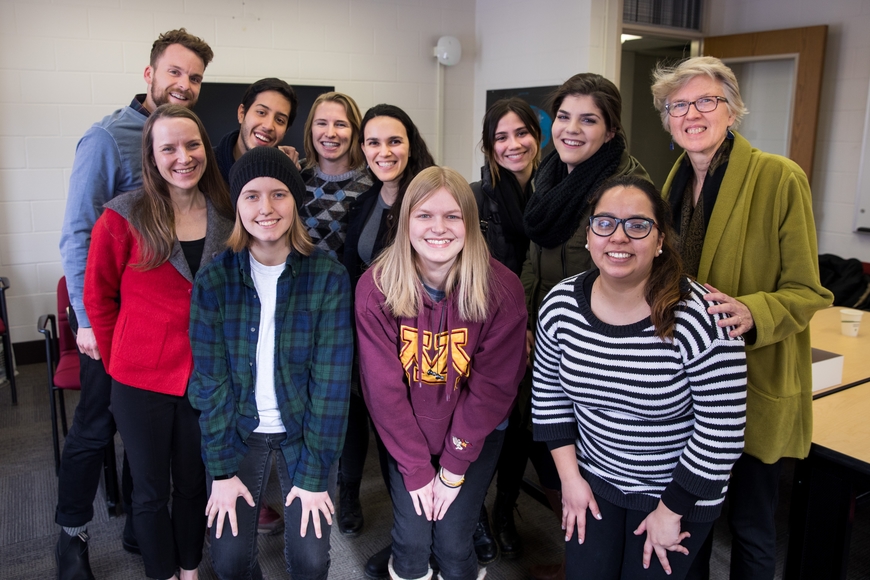Training the Next Generation of Human Rights Advocates and Scholars
The Human Rights Program has a long history of supporting human rights in Mexico, offering students hands on experience with human rights research and reporting projects. In 2015, Human Rights Program Director Barbara Frey, in collaboration with Professor Karina Ansolabehere from the private university Facultad Latinoamericana de Ciencias Sociales’ (FLACSO) and Senior Research Fellow with the Human Rights Program and Oxford University Professor Leigh Payne took on another innovative effort by establishing the "Observatory for Disappearances and Impunity in Mexico." The Observatory’s overarching purpose is to research the disappearances phenomena in Mexico and report findings to the public, policymakers, and other stakeholders.
The Observatory itself is headquartered at FLACSO’s offices in Mexico. FLACSO’s team uses non-governmental organization records to study the disappearances in the states of Nuevo Leon, Coahuila, and Tamaulipas. Simultaneously, a team of graduate and undergraduate student researchers led by Professor Frey at the Human Rights Program have been analyzing the press coverage of disappearances in the same three states, as well as in Guerrero, Veracruz, and Jalisco. As a part of this research, Professor Frey’s team began a pilot study in 2016 conducting a content analysis of Mexican newspaper El Norte’s coverage of disappearances in the state of Nuevo Leon.
Since the start of the pilot research, the Observatory’s work has continued to expand in exciting ways. Professor Frey was awarded a 2019 Human Rights Initiative grant to work on the final phase of this research project, slated to be finished by December 2019. Currently, a group of 10 University of Minnesota undergraduate and graduate students are working alongside Maria Terra, a recent Master of Human Rights graduate and manager of the research team. The team also includes graduate students Master of Human Rights first year Hunter Johnson and Olga Salazar, a Ph.D. student from the Department of Spanish and Portuguese. Finally, Global Studies and Political Science undergraduate students Rafael Gallegos, Catalina Zapata, Lena Atchan, Rose Staloch, Sheradyn Romo, and Brittany Becker are also working on the project.
The Minnesota-based research team is coding articles taken from Mexican newspapers that cover disappearances to understand how media can influence human rights movements, particularly related to enforced disappearances, in Mexico. Recently, the entire team participated in a training led by expert consultant on large-N database research projects Dr. Tricia Olsen from the University of Denver about conducting human rights quantitative research. The training included sessions on coding methodology, case workshopping, and a data analysis lab. This training provided student researchers with the opportunity to develop skills in quantitative research methods, data coding, and analysis from large samples that will serve them in future courses and professional positions. Further, the training the team received from Dr. Olsen equips them with the skills and knowledge to ensure that they can confidently complete a data analysis of their sources that will be eventually deposited into a publicly accessible database.



